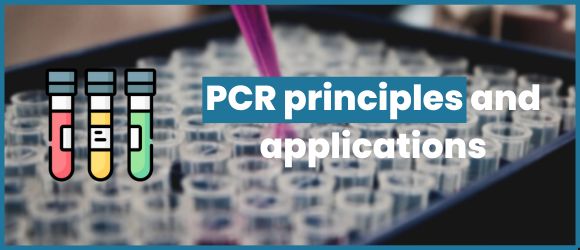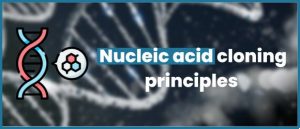PCR principles and applications
PCR (polymerase chain reaction) is a powerful method of in vitro DNA synthesis developed in 1983. PCR is a rapid, sensitive and inexpensive procedure for cloning and amplifying DNA (by selective replication) of specific interest without preparing libraries. The cloned DNA fragment has defined length and sequence. An important feature is that PCR produces large amount of specific DNA molecule from a small amount of template of relatively impure DNA (drop of blood, a hair root or a chunk of bone,…). Consequently, the technique has revolutionized molecular biology and is used in virtually every area of natural sciences and medicine thereby cutting across the boundaries separating basic and applied research, commercial technology and medicine.
The principle of PCR is rather simple and involves enzymatic amplification of a DNA fragment flanked by two oligonucleotide primers
This subject is continued on this website in the pdf entitled “PCR – cloning – applications” under the section “chapitre de cours” or you can may here to download the pdf.



